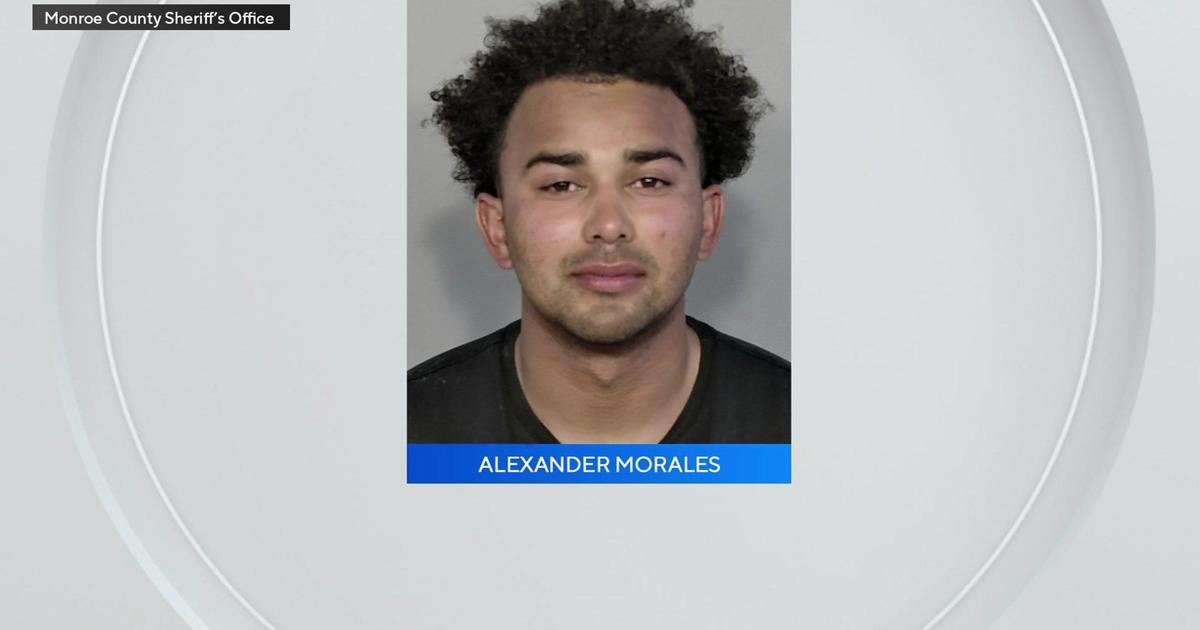Report: Miami-Dade School District Misused $6M For Driver's Ed Programs
MIAMI (CBSMiami/AP) - In Miami-Dade County, which notoriously boasts some of the worst drivers in the nation, a program was created decades ago to help public schools train the next generation of safety-conscious young motorists.
The concept: $3 of every Miami traffic ticket paid goes to the Drivers Education Safety Fund, part of a program Miami-Dade County created to reimburse schools that provide cars for crucial behind-the-wheel driving lessons.
But in reality, according to a newly released school district Inspector General's report, the Miami-Dade school district program was in shambles — even as it raked in $6.2 million that wound up being put into a general fund.
Daisy Gonzalez-Diego, a district spokeswoman, said the district used all of the money in some way for the driver's ed program. She said the funds had to go through the general fund because "that's the mechanism we use to pay the salaries of the teachers in those programs."
To get the money, school administrators knowingly misrepresented the state of the driver's ed program, the probe revealed. Between fiscal years 2011 and 2016, the district claimed to the county that either 36 or 37 campuses had working programs that met all aspects of the grant requirements — but in fact, only six campuses did.
Gonzalez-Diego said all but three of the high schools offered "either classroom, virtual or behind-the-wheel instruction."
"The issue is that the grant required a behind-the-wheel instruction component, which only existed in six of these schools," Gonzalez-Diego said in an email.
Some resourceful teachers brought their own personal video game consoles — outfitted with mini wheel controllers and driving games — to help students practice how to drive. One driver's ed teacher told agents she had to use a literal stick to shift gears — the actual gear shifter had long ago broken off. Another instructor was forced to use an electric golf cart to teach students how to drive.
CARS WERE IN 'HORRIBLE CONDITION'
Office of Inspector General agents found one training car, a dilapidated 1998 Chevrolet Monte Carlo, abandoned in a district parking lot so long that wasps had nested inside. The cars that were actually being used to train students were all models from the late 1990s, according to the report by Miami-Dade Inspector General Felix Jimenez.
"Most of the cars throughout the district were in horrible condition, including cars with shattered windows, flat tires, rusted and dented roofs, and doors," the report said. "At one location, the car was serving as an iguana nest."
The Inspector General's Office is now recommending that the school district beef up its drivers education program, and begin paying the trust fund back the money — or at least, put additional money into the program as a credit against the misappropriated funds. The district says it's on board.
"Staff will collaborate with Miami-Dade County to restore an effective and accessible driver education program for students in our community," Deputy Superintendent Jaime Torrens wrote to the Inspector General in response to the report.
The investigation was not considered criminal in nature because the money was not stolen, but rather applied to legitimate uses, although outside the scope of the driver's ed program.
HISTORY OF THE PROGRAM
The money that was supposed to go toward school district driver education programs came from the Drivers Education Safety Trust Fund created by the Miami-Dade Board of County Commissioners in 2002. It was fed by $3 added to every civil traffic citation, according to the report.
The trust fund was created thanks to a 2002 Florida law, the Dori Slosberg Drivers Education Safety Act, which allowed local governments to use portions of ticket fines to fund traffic schools in public and non-public schools. The Drivers Education Safety Fund was meant to improve existing drivers ed programs, ensuring funding for programs that require at least 30 percent of a student's time is actually behind the wheel of a car.
The law is named after Dori Slosberg, a 14-year-old girl who was killed in a horrific traffic crash in Palm Beach County. Four other teens also died in the wreck.
The Office of Inspector General began its investigation after receiving a complaint alleging improper use of the funds, Jimenez said in his report.
SPECIAL NEEDS DRIVING PROGRAM STOPPED
The county program also required funding toward providing students with special needs driver education, but that hasn't happened since December 2015. That's because the only teacher in that program retired a month earlier and was never replaced, according to the report.
District officials reacted to the report at the School Board's meeting Thursday night. Both Superintendent Alberto Carvalho and Chief Financial Officer Ron Steiger said the county money did go to driver education programs. But, they acknowledged the district did not spend enough of it, as is required under the statute, teaching kids how to actually drive a car.
"Even though it is absolutely accurate that the funds were used strictly for drivers ed educational program, the reason why there was a problem was that program fell short in a number of cases, obviously, of the required 30% minimum time behind the wheel as far as instruction was concerned," Carvalho told School Board members.
But, the report clearly states administrators in charge of submitting requests for funds from the county knowingly falsified the paperwork to make it appear as if the district had a far more robust driver education program than existed at the time.
DISTRICT PROVIDED FALSE INFORMATION TO COUNTY
For example, the report details that in Jan. 28, 2013, Jayne Greenberg, who was then-director of the district's Physical Education, Health Literacy and Life Skills department and tasked with overseeing the driver education program, told Martha Diaz, then-executive budget director, that only six schools qualified for full funding from the county.
But, two days later, Diaz, when responding to an email from the county asking for a list of qualified schools, provided 36. When interviewed by OIG during the investigation, she told them she knew the list was not accurate and provided the false information "for the sole purpose of receiving 100% of the funding available from the county to cover teachers salaries and fringe benefits," according to the report.
She also told agents she provided the list of 36 schools because she was asked to do so by then-Deputy Chief Financial Officer Judith Marte and Steiger, who at the time was the district's chief budget officer.
"I wouldn't have done it otherwise," she told agents, according to the report.
Steiger did not immediately return an email seeking comment on Diaz's comments to the agents. Marte, who eventually became chief financial officer before resigning from the district in 2017, could not be reached for comment. Steiger succeeded her as CFO after she stepped down.
The school district released the following statement about the report Friday, saying that Steiger began correcting the reimbursement policy soon after he became CFO:
"Miami-Dade County Public Schools is disappointed with the sequence of events that unfortunately led to the findings in the OIG report. We concur with, and are already implementing, the recommendations outlined. It is important to note that all funds received from the county were solely used to support the drivers ed program. Prior to the OIG investigation, in 2017 our current Chief Financial Officer took immediate action to ensure that only allowable expenses were submitted to the county for reimbursement. Since then, we have taken a conservative approach to seeking reimbursement from the county. It is regrettable that for three years, at the height of the economic recession, budgetary decisions specific to this program were made without fully taking into account programmatic considerations. Today, there are safeguards in place that would prevent this from occurring. Despite this report being finalized, we continue to look at a number of matters disclosed in the findings."
Gonzalez-Diego said the district bought 23 new cars for the program in 2019.
District 6 School Board Member Mari Tere Rojas said that the driver education program's state of disrepair, and the district's alleged dishonesty to the county over the program, cheated many students out of years of valuable instruction behind the wheel.
"When you look at this, you wonder, thousands of students in other schools were deprived of the opportunity to participate in the drivers education program. And, these students were not afforded the same opportunity to learn because it's only offered at these schools that are identified here," Rojas said.
Steiger, responding to Rojas, insisted that all the money requested from the county went to driver education, again, admitting most schools' programs did not satisfy the requirement for actual wheel time.
He also said his office did not know it was giving the county false information about the program.
"In 2020, (the Inspector General agents) did a lot of due diligence about what the program was like between 2012 and 2015. Clearly, the budget office did not," Steiger said. "The budget office took assumptions and submitted it to the county, and the Inspector General is coming back years later and saying these assumptions were wrong."
(© Copyright 2021 CBS Broadcasting Inc. All Rights Reserved. The Associated Press contributed to this report.)



